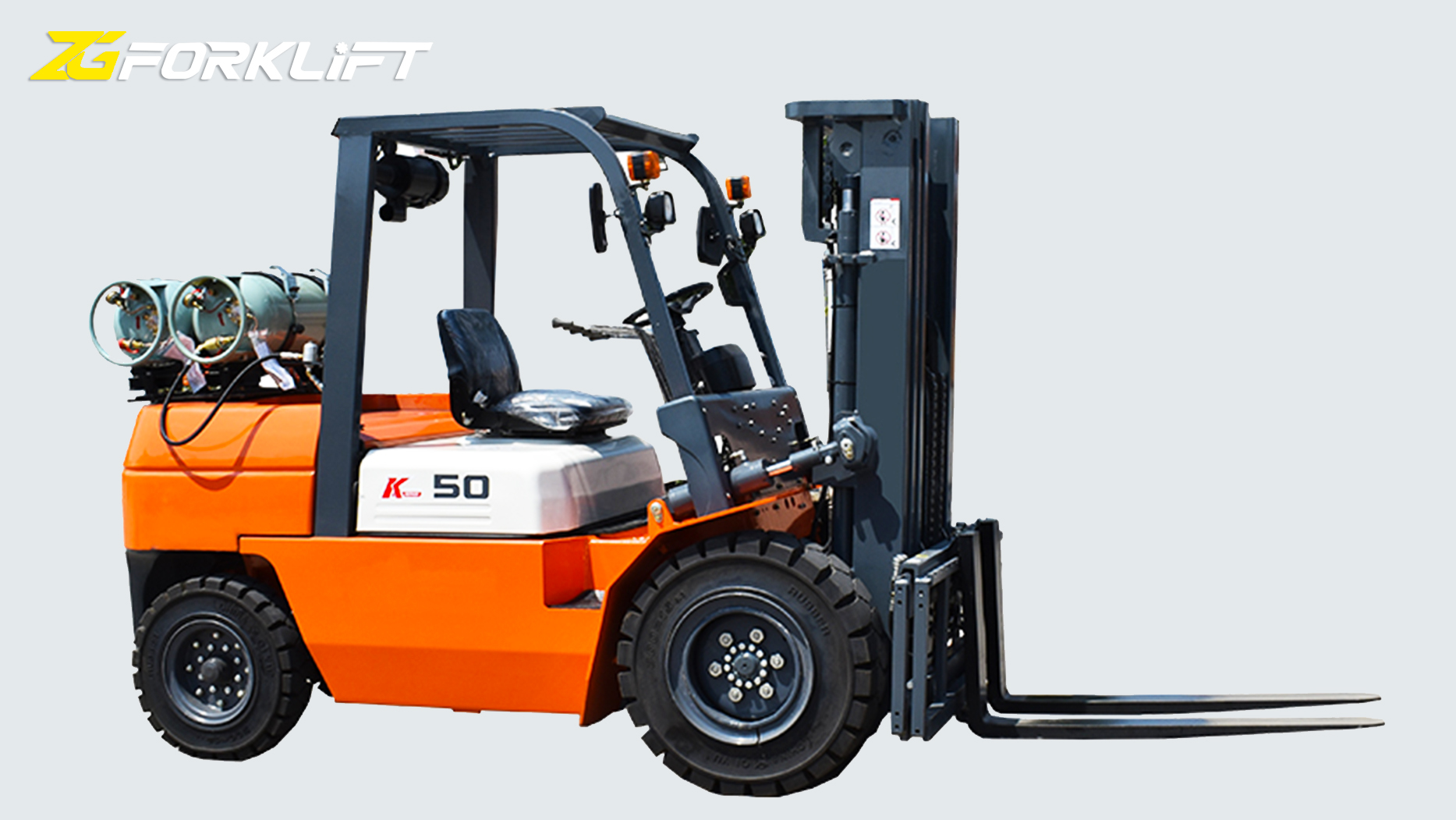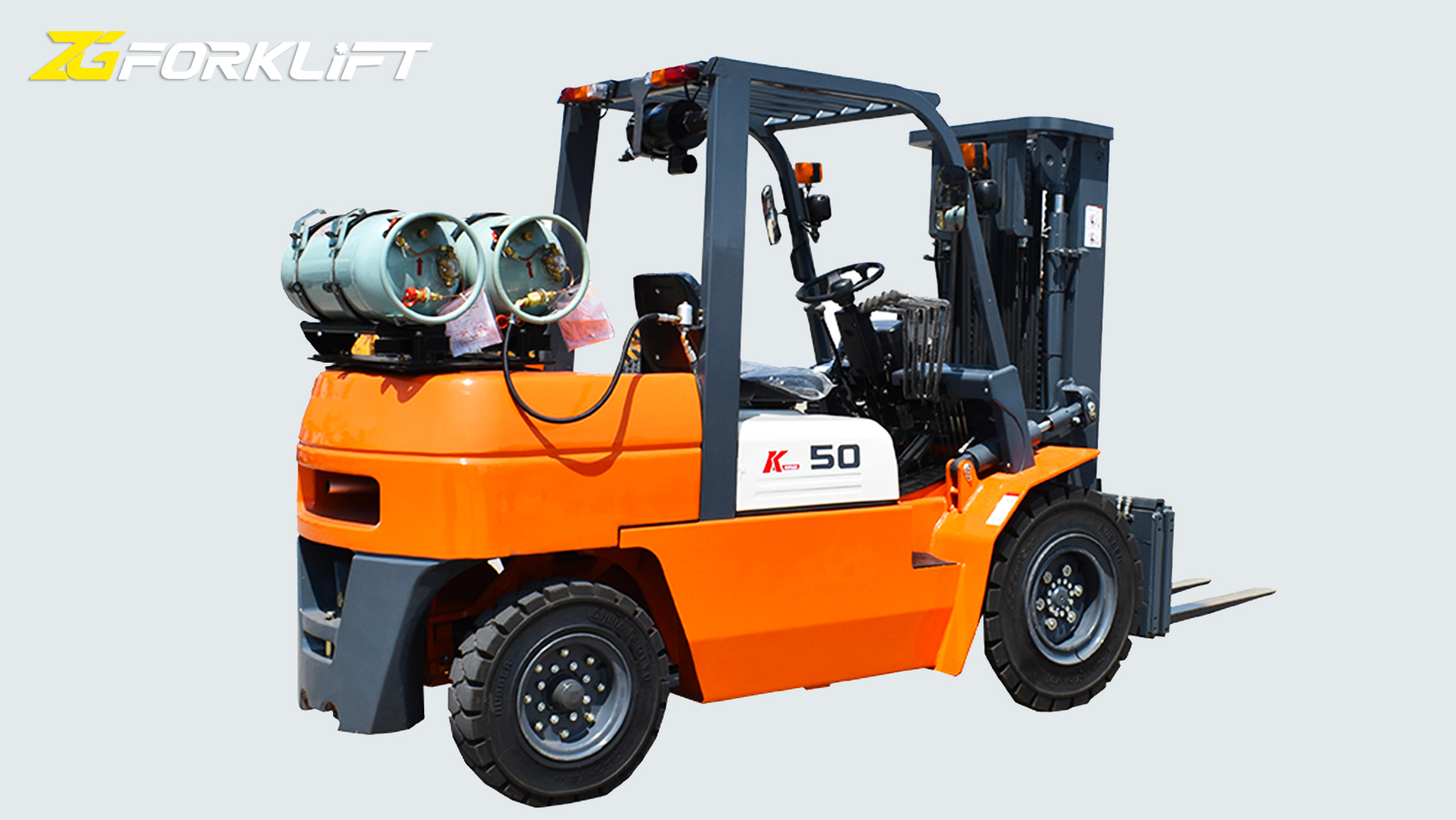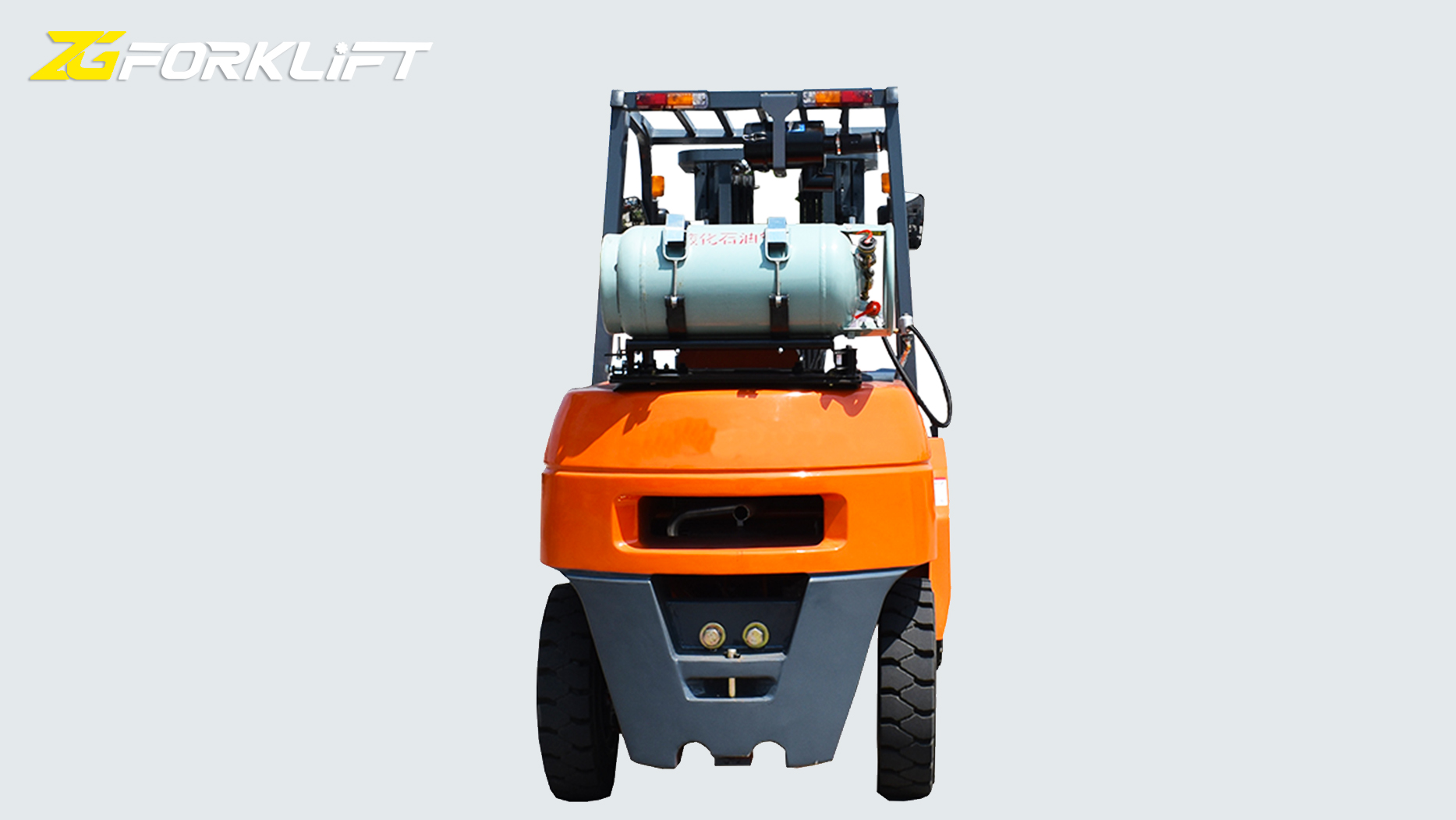LPG vs. Diesel Forklifts: A Comparative Analysis
Choosing the right forklift for your material handling needs is a critical decision that can significantly impact your operational efficiency, productivity, and overall costs. Two of the most popular options are Liquefied Petroleum Gas (LPG) and diesel forklifts. Both offer distinct advantages and disadvantages, making the selection process a careful consideration of various factors. This article provides a comprehensive comparison to help you make an informed decision.
1. Performance and Power
Superior Power: Diesel engines are renowned for their high torque and power output, making them ideal for heavy-duty applications, such as:
Heavy Lifting: Handling large and bulky loads with ease.
Outdoor Operations: Excelling in demanding outdoor environments with inclines, uneven terrain, and challenging weather conditions.
Continuous Use: Sustaining high performance levels during extended operation periods.
Faster Acceleration: Diesel engines provide quicker acceleration and higher top speeds, enhancing operational efficiency.
Reliable Power: LPG engines offer reliable power for most industrial applications, providing sufficient torque and speed for typical material handling tasks.
Suitable for Indoor/Outdoor Use: While less powerful than diesel, LPG forklifts can effectively handle indoor and outdoor operations, albeit with limitations in extreme conditions.
2. Fuel Efficiency and Costs
Diesel Forklifts:
Generally More Fuel-Efficient: Diesel engines tend to offer better fuel economy compared to LPG, especially in heavy-duty applications.
Lower Fuel Costs: Diesel fuel is typically less expensive than LPG, resulting in lower operating costs.
LPG Forklifts:
Fuel Costs Can Vary: LPG prices fluctuate depending on market conditions and regional availability.
Refueling Considerations: Requires access to LPG suppliers and may involve logistical challenges for refueling.
3. Emissions and Environmental Impact
Diesel Forklifts:
Higher Emissions: Diesel engines produce higher levels of particulate matter and nitrogen oxides (NOx), contributing to air pollution.
Environmental Concerns: Diesel emissions have significant environmental impacts, including respiratory issues and climate change.
Emission Control Technologies: Modern diesel engines incorporate advanced emission control systems (e.g., Selective Catalytic Reduction - SCR) to reduce harmful emissions.
LPG Forklifts:
Cleaner Emissions: LPG produces significantly lower emissions than diesel, including reduced particulate matter and NOx.
Cleaner Burning Fuel: LPG is a cleaner-burning fuel that results in less air pollution.
Lower Environmental Impact: Contributes to a smaller carbon footprint compared to diesel.
4. Maintenance and Operating Costs
Diesel Forklifts:
Lower Maintenance Costs: Diesel engines generally require less frequent and less expensive maintenance compared to LPG engines.
Longer Lifespan: Diesel engines are known for their durability and longer lifespan, leading to lower long-term maintenance costs.
LPG Forklifts:
Higher Maintenance Costs: LPG engines may require more frequent maintenance, such as adjustments to fuel systems and emission controls.
Potential for Fuel System Issues: LPG fuel systems can be more complex and prone to occasional issues.
5. Safety Considerations
Diesel Forklifts:
Higher Fire Risk: Diesel fuel is highly flammable and poses a greater fire risk than LPG.
Exhaust Fumes: Diesel exhaust fumes can be hazardous if not properly ventilated, leading to health risks for operators and nearby personnel.
LPG Forklifts:
Flammable Fuel: LPG is also flammable and requires proper handling and storage to ensure safety.
Ventilation Requirements: Adequate ventilation is essential to prevent the buildup of LPG fumes.
7. Noise Levels
Diesel Forklifts:
Significantly Louder: Diesel engines are generally louder than LPG engines, creating a noisier operating environment.
Noise Pollution: Can contribute to noise pollution in nearby areas.
LPG Forklifts:
Quieter Operation: LPG engines typically produce lower noise levels compared to diesel, creating a quieter working environment.
8. Initial Investment Costs
Diesel Forklifts:
Higher Initial Cost: Diesel forklifts generally have a higher initial purchase price compared to LPG forklifts.
LPG Forklifts:
Lower Initial Cost: Offer a more cost-effective initial investment compared to diesel forklifts.
9. Operator Preference
Operator preference can also play a role in the decision-making process. Some operators may prefer the power and performance of diesel forklifts, while others may prefer the quieter and cleaner operation of LPG models.
10. Regulatory Considerations
Environmental regulations and emission standards vary by region. It is crucial to ensure that the chosen forklift complies with all applicable regulations to avoid penalties and ensure safe and responsible operation.
Choosing the Right Forklift
The "better" option between LPG and diesel forklifts depends entirely on your specific needs and priorities. Consider the following factors when making your decision:
Application Requirements:
What type of loads will you be handling?
What is the nature of your work environment (indoor/outdoor, terrain)?
What are your performance requirements (speed, power, lifting capacity)?
Budget Constraints:
Consider both initial investment costs and ongoing operating costs (fuel, maintenance).
Environmental Considerations:
Evaluate the environmental impact of each option and consider your company's environmental sustainability goals.
Safety Requirements:
Assess potential safety hazards and implement appropriate safety measures.
Regulatory Compliance:
Ensure compliance with all relevant environmental regulations and emissions standards.
By carefully evaluating these factors, you can select the forklift that best suits your operational requirements and contributes to a safe, efficient, and cost-effective material handling operation.
Conclusion
Both LPG and diesel forklifts offer distinct advantages and disadvantages. Diesel forklifts excel in heavy-duty applications, offering superior power and fuel efficiency, but have higher emissions and noise levels. LPG forklifts provide a balance of power, emissions, and operating costs, making them suitable for a wider range of applications. Ultimately, the best choice depends on your specific needs and priorities.
Post time:Jan.16.2025



